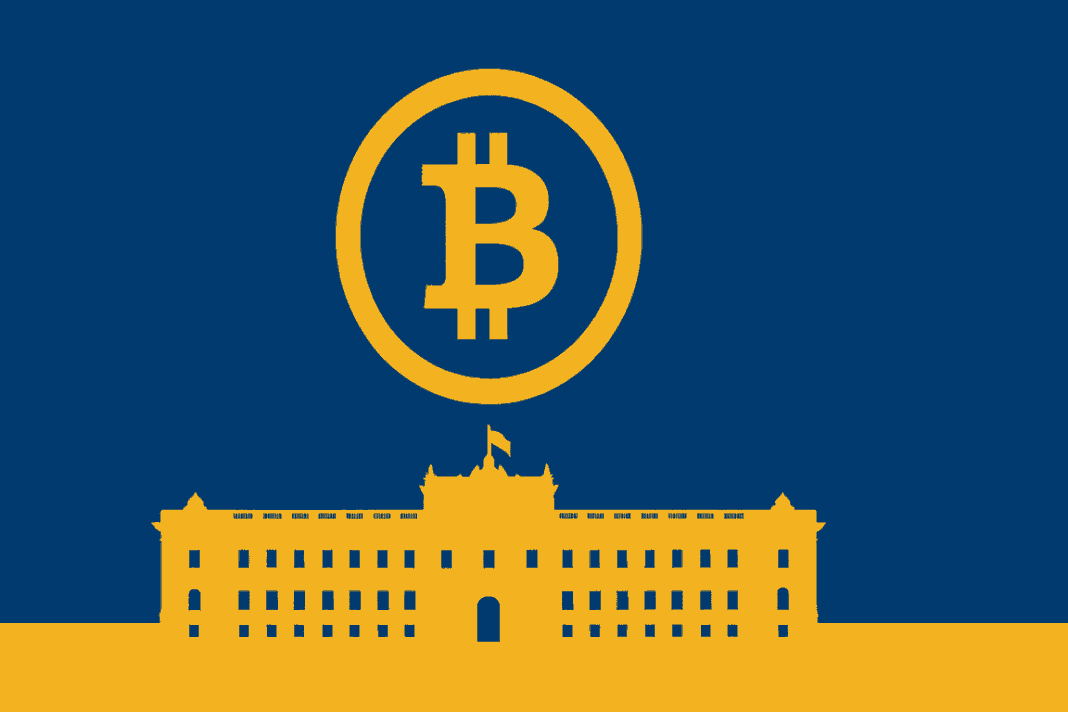Two Swedish Democrats—Dennis Dioukarev and David Perez—filed a Riksdag proposal to examine a Sweden Bitcoin reserve as an inflation hedge and diversification tool.
They also seek a pledge of no CBDC in Sweden by keeping the Riksbank Act unchanged.
They say Sweden should enter the digital arms race. They argue that peers, including the United States, are exploring sovereign Bitcoin holdings. They position the Riksdag proposal as a state-level reserves question, not a retail trend.
They highlight the option to seed a Sweden Bitcoin reserve with seized Bitcoin. However, they leave the managing authority open.
They note that Bitbo holdings show no publicly listed Swedish Bitcoin today.
Riksdag Proposal and Digital Arms Race Keyword Focus
The Riksdag proposal frames the Sweden Bitcoin reserve as a response to inflation and reserve correlation risk.
The text says Sweden should “participate in this digital arms race and join the growing group of nations that have accepted and recognized the potential of Bitcoin.” The wording sets a clear policy signal.
The lawmakers link funding to seized Bitcoin. Sweden’s law from November 2024 allows confiscation of luxury items, including crypto, even if the owner is not the main target. The Riksdag proposal does not assign custody to the Riksbank or another body.
Public trackers matter in this debate. Bitbo holdings list no national Bitcoin for Sweden. Therefore, any Sweden Bitcoin reserve would likely start with seized Bitcoin or later budget allocations.
Diversification Case: Inflation Hedge, Supply Cap, and Settlement
The Sweden Bitcoin reserve case leans on diversification. Traditional reserves—currency and gold—face political and economic shocks. Bitcoin does not follow one state’s policy path, which can lower correlation across reserves.
The inflation hedge argument centers on the 21 million supply cap. The Riksdag proposal also notes settlement speed. It says Bitcoin transactions can move faster than many fiat routes, with comparatively low operating costs.
Scale is part of the data. Lawmakers say Bitcoin is the sixth-largest asset globally, near silver, and larger than Tesla, Meta, and Amazon by market value.
They add that its eventual role remains open, which keeps the Sweden Bitcoin reserve discussion focused on risk and diversification.
No CBDC Sweden: Riksbank Act, e-krona Pilot, and Rights Tracker
The no CBDC Sweden element is explicit. The lawmakers want a pledge not to change legal-tender definitions in the Riksbank Act. That pledge would signal that Sweden does not intend to introduce a CBDC.
Current payments are already digital. Most Swedes use Swish for transfers and retail payments. The e-krona pilot began in 2020. The final report in March 2024 said a launch is “ultimately a political decision.”
External monitors add context. The Human Rights Foundation CBDC tracker lists benefits like payment efficiency and inclusion.
It also lists risks, including privacy concerns and new avenues for corruption. The no CBDC Sweden stance in the Riksdag proposal acknowledges those trade-offs.
Swedish Democrats’ Leverage, Prior Calls, and Industry Data
The Swedish Democrats received over 20% of the vote in 2022, the second-largest share. They back the ruling coalition of Moderates, Liberals, and Christian Democrats. That position gives the Riksdag proposal visibility and procedural traction.
This is not the first call. In April, Rickard Nordin, deputy leader of the Centre Party, urged Finance Minister Elisabeth Svantesson to evaluate Bitcoin. That letter framed a national discussion before this Riksdag proposal on a Sweden Bitcoin reserve.
Industry data shows depth. Tracxn Sweden crypto companies lists 85 firms. At least 20 raised a combined $48 million in venture and private funding.
The top five include an exchange and a cold-wallet developer, which relates to custody needs for any Sweden Bitcoin reserve.
Governance, Seized Bitcoin Mechanics, and Reporting Questions
Operational control remains open. The Riksdag proposal does not specify whether Sveriges Riksbank, the National Debt Office, or another entity would hold keys. Any Sweden Bitcoin reserve must define custody, audit, and disclosure.
If seized Bitcoin seeds the reserve, rules will matter. Authorities would need procedures for storage, disposition, and sale limits. Those rules would shape reporting formats and risk metrics.
Integration with existing reserves is a technical step. A Sweden Bitcoin reserve would sit alongside SEK assets and gold.
Regular valuation, stress metrics, and transparency would align with Sweden’s current standards.
Disclosure:This article does not contain investment advice or recommendations. Every investment and trading move involves risk, and readers should conduct their own research when making a decision.
Kriptoworld.com accepts no liability for any errors in the articles or for any financial loss resulting from incorrect information.

Tatevik Avetisyan is an editor at Kriptoworld who covers emerging crypto trends, blockchain innovation, and altcoin developments. She is passionate about breaking down complex stories for a global audience and making digital finance more accessible.
📅 Published: October 2, 2025 • 🕓 Last updated: October 2, 2025


